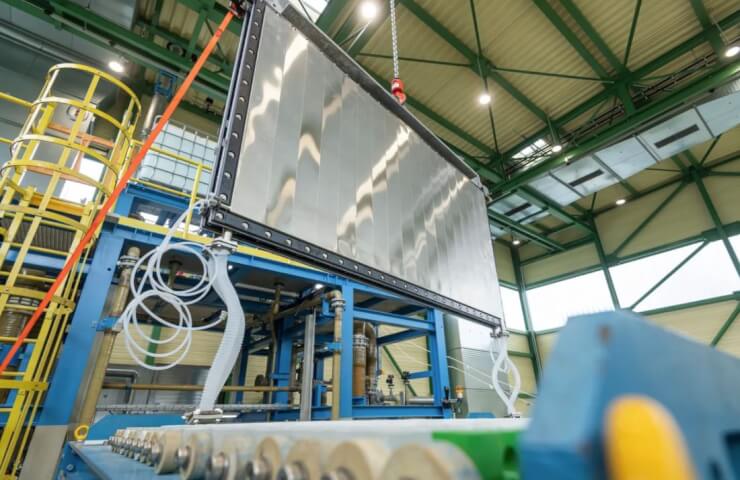German engineering and metallurgical concern ThyssenKrupp has signed a contract with Shell for the supply of equipment for the Hydrogen Holland I project in the port of Rotterdam in the Netherlands.
As part of the contract, ThyssenKrupp Uhde Chlorine Engineers will manufacture a 200 MW hydrogen electrolysis system based on its large 20 MW alkaline water electrolysis module.
The first construction work on the construction of the electrolytic cells is expected to begin in the spring of 2022. Shell's final investment decision on the construction of Hydrogen Holland I is expected in 2022, and the green hydrogen generation system is scheduled to be commissioned in 2024.
“We look forward to supporting the creation of a major hydrogen hub in Central Europe and thereby contributing to Europe's green energy transition,” said Dr. Christophe Noares, Head of Green Hydrogen at ThyssenKrupp Uhde Chlorine Engineers.
The center of the hydrogen project "Hydrogen Holland I" will be a turbine hall with an area of more than 2 hectares. Green hydrogen will be used by industry and the transport sector.
Electricity for the electrolysis of hydrogen will come from the Hollandse Kust (Noord) offshore wind farm with green guarantees. The hydrogen will be transported through a pipeline about 40 kilometers long, which leads from the electrolytic cell to the Rotterdam Energy and Chemical Park and on to Shell.
Climate neutrality is one of the top priorities for the site: reusable building materials will be used wherever possible, and the outside walls of the plant are equipped with solar panels.
Green hydrogen is an important pillar of the energy transition to sustainable decarbonization. Countries that account for more than 80 percent of global GDP are expected to enter the hydrogen economy with their own hydrogen strategy by 2025.




